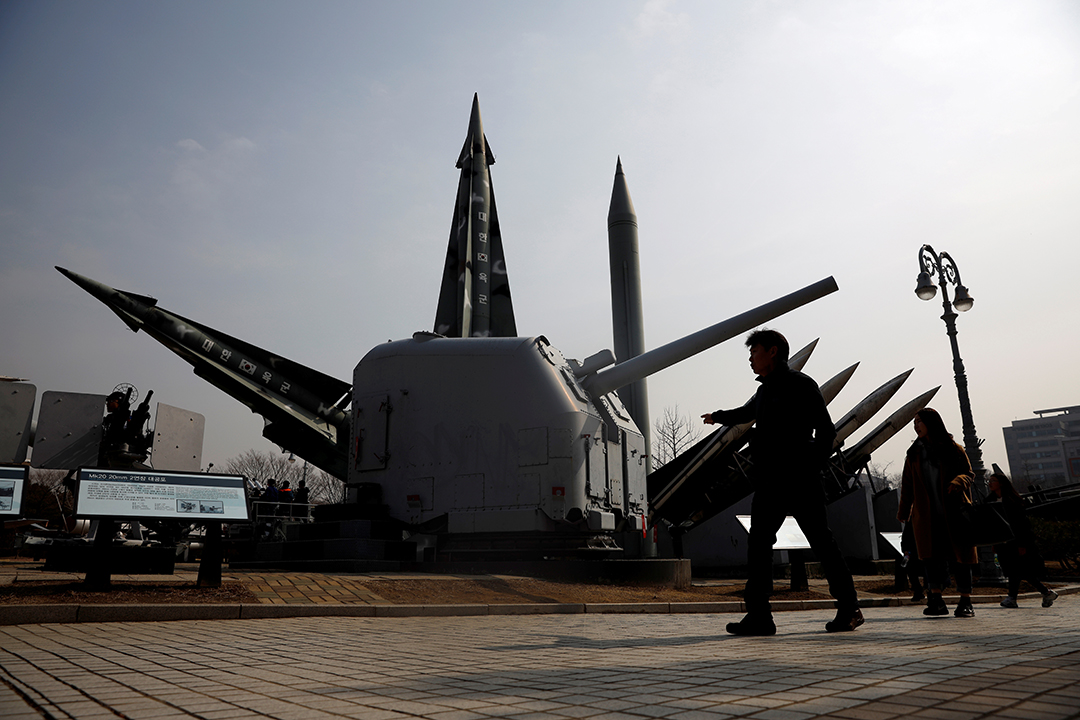70th anniversary of Korean War highlights strength of U.S.-ROK alliance

FORUM Staff
The Korean War began 70 years ago on June 25, 1950, when more than 130,000 North Korean troops, armed by the Soviets, swarmed across the 38th parallel, invading South Korea.
The United Nations, led by the United States, quickly came to the defense of the Republic of Korea (ROK) and immediately denounced North Korea’s actions. The People’s Republic of China (PRC), although a U.N. member, backed North Korea and become its main ally in the war, pitting communism versus democracy.
The Korean War became the first war that the U.N. engaged in after its founding in 1945. Of its original 51 members, 16 nations sent troops and others including Japan provided logistical aid in support of South Korea.
South Korea and its allies fought the North and the PRC until reaching an armistice in 1953. However, no formal peace treaty was signed, leaving the countries technically at war, historian Bruce Cummings at the University of Chicago, explained to The New York Times newspaper.
The agreement created a new boundary at the 38th parallel, where the war began, expanding South Korea’s territory by 3,880 square kilometers and creating the 4-kilometer-wide Demilitarized Zone.
The three-year Korean conflict laid the foundation for today’s relations among North Korea, South Korea and the United States, as well as for the U.S.-Soviet rivalry.
The war devastated much of the Korean Peninsula. Between 3 million and 4 million people were killed, although exact numbers remain unknown because of a lack of information from North Korea, The New York Times reported. Civilians may have accounted for 50-70% of the dead, according to some historians. (Pictured: People walk past the Korean War Memorial Museum in Seoul, South Korea).
Since the armistice, South and North Korea have coexisted but taken divergent paths. South Korea rapidly transformed into an economic giant, with all the trappings of a thriving, prosperous contemporary society. North Korea economically isolated itself, putting most of its limited, regime-controlled resources into its military and rendering it often incapable of meeting the basic needs of its population, including feeding its citizens, various media outlets have reported.
Meanwhile, the U.S.-ROK alliance is stronger than ever.
“This year marks the 70th anniversary of the start of the Korean War. Then, as now, the United States stands fully committed to the defense of the Republic of Korea,” U.S. Secretary of Defense Mark Esper said February 24, 2020, during a press briefing at the U.S. Pentagon with ROK Minister of National Defense Jeong Kyeong-doo. “Forged through years of combat and shared sacrifice, our alliance is ironclad and remains the linchpin of security, stability and prosperity on the Korean Peninsula and in the larger Indo-Pacific region.”
“I deeply thank the Korean War veterans and their families as well as the U.S. government to make sure that the great sacrifice of ROK and U.S. forces 70 years ago did not go in vain,” Jeong said at the news conference.
“The ROK will engrave deeply within its heart the sacrifice and dedication of all heroes who committed themselves for the peace and stability of the Korean Peninsula and developed the ROK-U.S. alliance into a great alliance that is both mutually complementary and future-oriented,” Jeong wrote in an opinion piece published March 20, 2020, on the Defense News website.
“Furthermore, it will achieve complete denuclearization of North Korea based on the strong military might born of a secure combined defense and military readiness posture. The ROK will also continue creating a ‘Peaceful Peninsula’ free of worries for war by establishing permanent peace,” Jeong wrote.




